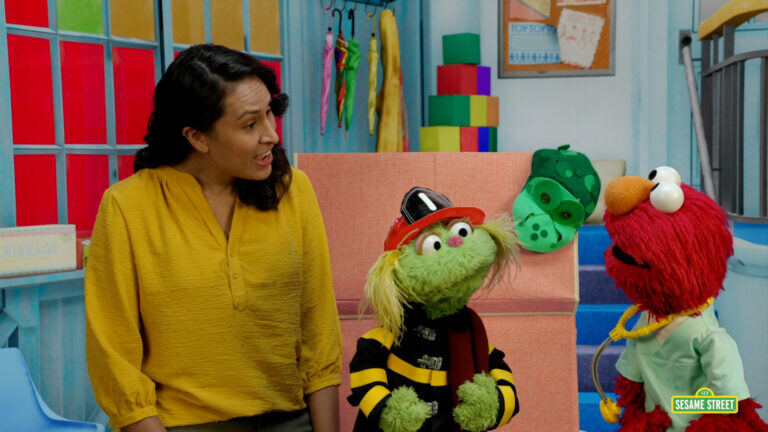muppetry
Even the Muppets are being called to fight the country's mental health crisis

Courtesy of Sesame Workshop
"Elmo is just checking in!" You may remember the red Muppet tweeting earlier this year. "How is everybody doing?" You may also remember the internet's response: We are resoundingly unwell!
Elmo and his fuzzy pals from Sesame Street are accustomed to asking people about their feelings and sharing their own, with the goal of fostering conversations around mental wellbeing. The Health and Human Services Department has long partnered with the Sesame Workshop to distribute mental health care resources to parents, kids, and even military families specifically. "[We] try to make sure that we use our muppets in a way that is not scary, but at the same time, provides a scenario that's comforting," Sesame Workshop's Jeanette Betancourt, senior vice president for U.S. social impact, told STAT's Sarah Owermohle. Read more from Sarah on Muppets and mental health.
nursing
Amid visa complications, U.S. hospitals increasingly rely on international nurses
Foreign-educated registered nurses covered twice as many hospital beds in 2022 as they did in 2010, according to new analysis from KFF. In total, there are 500,000 immigrant nurses working across the country in hospitals, nursing homes, doctor's offices, and home health services.
The report, which analyzed data from the American Hospital Association survey, comes in the midst of a dire nurse staffing shortage — though there's debate about whether that's truly the best name for the crisis. Regardless of what you call it, the situation remains dire as RNs continue to demand better working conditions and often cite rampant short staffing as a reason for leaving the job. Compounding the issue: Just last month, the federal government extended a pause in its processing of new international nurse visa applications.
addiction
Did overprescription of opioids actually drive the addiction crisis?
As the opioid crisis spread across the U.S., overprescription of legal drugs was never the problem, patient advocate and researcher Richard Lawhern writes in a First Opinion essay. This story line has been perpetuated by the federal government, he argues, but it can actually be explained in part by a sort of clerical error.
For years, the CDC and the U.S. Bureau of Vital Statistics were misattributing deaths involving illegal street fentanyl to deaths caused by "prescription" drugs. When this error was corrected, Lawhern says, the number of death certificates that mentioned prescription drugs dropped by half. Read more on Lawhern's surprising take on the role physicians did and didn't play in the opioid crisis.


No comments